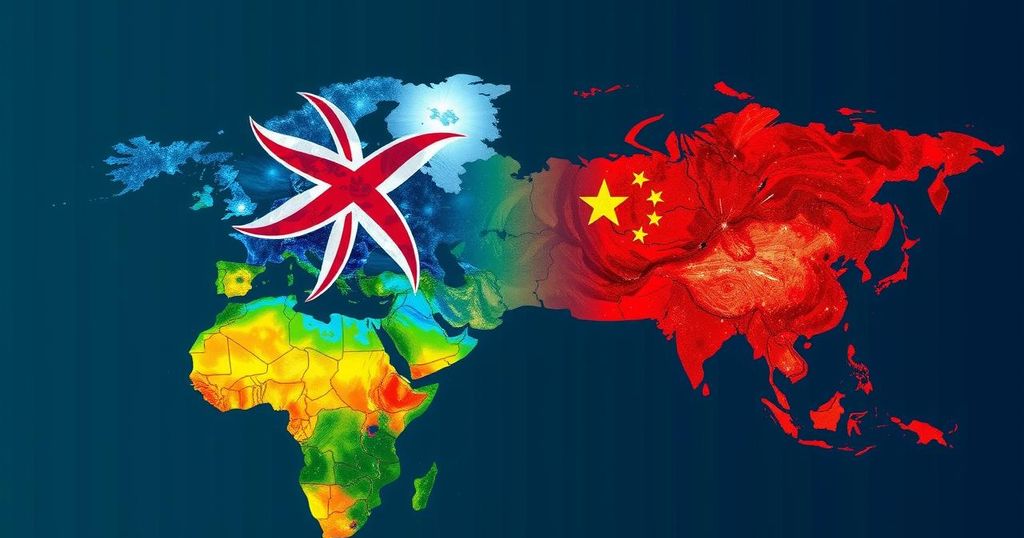The article discusses the importance of UK-China cooperation at COP29 to foster progress in climate action amid rising global temperatures. It highlights their commitment to combat climate change through collaborative efforts, expert committee interactions, and the potential to lead by example with robust Nationally Determined Contributions (NDCs) for 2035.
The unprecedented rise in global surface temperatures in 2024 has underscored the critical need for effective climate action worldwide. At the UNFCCC COP29 meeting in Azerbaijan, important advancements, particularly on international carbon markets, have been achieved, yet there is an emergent recognition of the necessity for bilateral and sub-national dialogues to catalyze progress. A pivotal alliance between the UK and China can serve as a beacon of international cooperation, enhancing efforts to mitigate climate change throughout this decade.
During the G20 summit in Brazil, leaders from the UK and China committed to collaborate on pressing issues, including clean energy and climate change, acknowledging their shared global responsibilities. In our pursuit of enhanced cooperation, we propose that our respective expert climate committees intensify their engagements. While our committees operate under varying mandates and frameworks, effective collaboration can empower us to provide better advice to our governments on achieving decarbonization and facilitating a green transition that simultaneously fosters employment and economic growth.
The UK Committee has recently provided guidance on the UK’s 2035 Nationally Determined Contribution (NDC), while the Chinese Committee is actively advising on China’s dual carbon objectives and associated climate risks. Greater consensus can be reached through the expertise offered by our committees, promoting mutual understanding and actionable strategies.
With the support of the UK’s Foreign, Commonwealth and Development Office (FCDO) and China’s Ministry of Ecology and Environment (MEE), collaboration between the two nations has evolved significantly since 2013, focusing on climate change risks and resilience strategies. In recent years, our committees have engaged jointly to provide beneficial advice relevant to our national contexts, thereby enhancing the advisory capabilities for our governments.
To build a more sustainable and climate-resilient society, the UK and China should leverage the successes of past cooperation and strengthen their existing frameworks. A joint statement promoting multilateral climate initiatives could be advantageous. Additionally, we propose the formation of workstreams dedicated to clean energy transitions, collaborative governance of climate and nature, resilience planning, and green financing, working alongside other nations to facilitate an equitable transition that supports sustainable economic growth.
By formalizing comprehensive and robust NDCs for 2035, the UK and China could exemplify effective climate leadership, setting a vital precedent for the global community in addressing the existential challenge of climate change.
The context surrounding the article highlights the alarming rise in global temperatures and the urgent need for joint international efforts to tackle climate change. As nations grapple with the various impacts of climate change, COP29 presents an essential forum for dialogue and progress. The focus has shifted from solely multilateral negotiations to increasingly recognizing the importance of bilateral cooperation, particularly between major economies such as the UK and China. Their collaboration bears significant potential to set a positive global example for climate action.
In summary, the collaboration between the UK and China holds transformative potential for global climate initiatives. By advancing their expert committees’ engagement and aligning on key climate policy areas, both nations can not only address their specific challenges but also offer a model of leadership for others to follow. With strong commitments to their respective NDCs for 2035, the UK and China can enhance international cooperation and drive meaningful progress in the fight against climate change.
Original Source: www.chinadaily.com.cn






